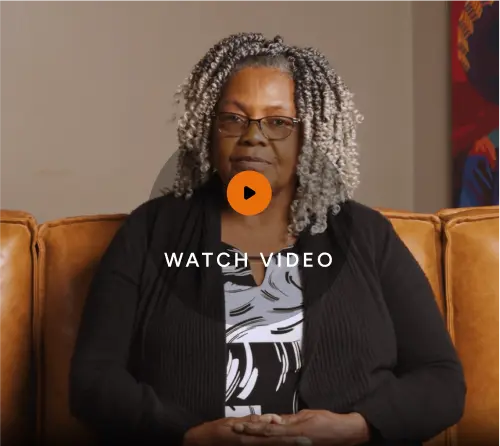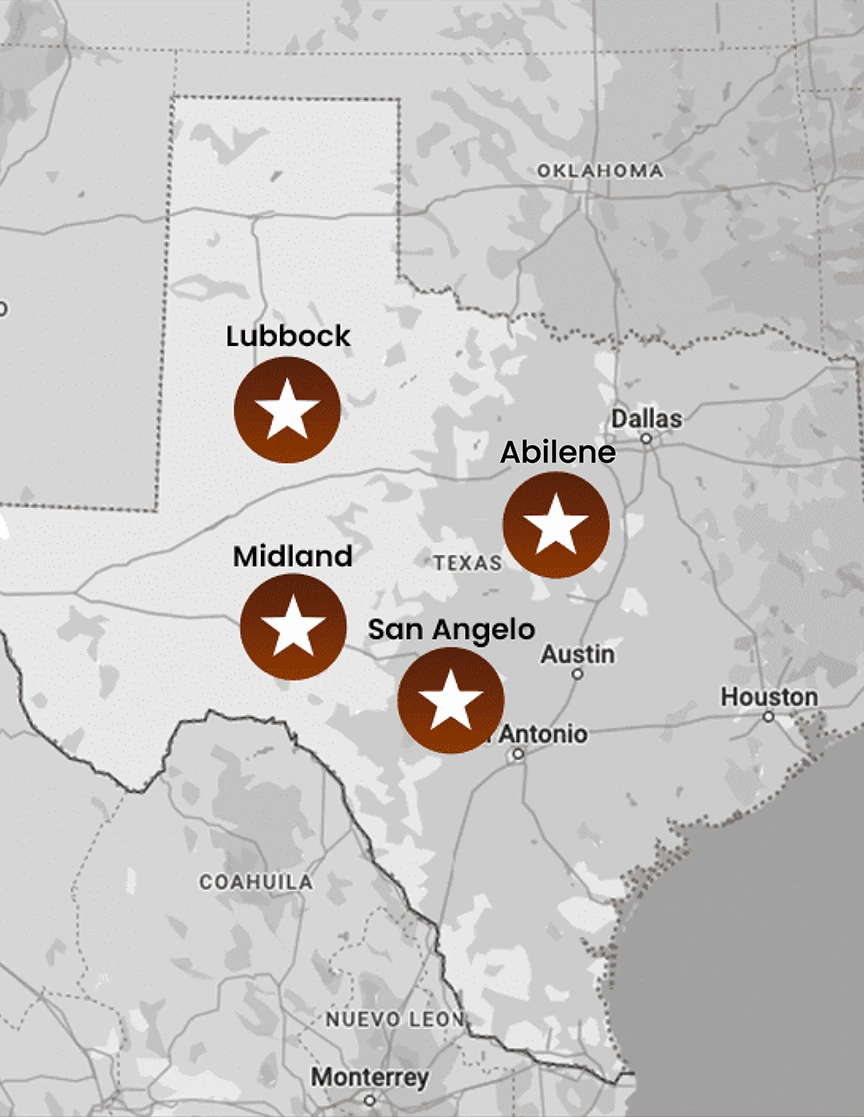Headaches are a common yet overlooked symptom after a car accident. Many assume they’re minor, but they can indicate something more serious like concussions, whiplash, or spinal injuries, even if there was no direct head impact.
According to the Centers for Disease Control and Prevention (CDC), post-traumatic headaches are a leading symptom of mild traumatic brain injuries in crash victims. These headaches can appear immediately or develop days to weeks later, making them easy to overlook.
At Keith & Lorfing, we have over a century of combined legal experience and have taken 500+ trials to court. Voted Best Lawyers in Abilene in 2023, our firm is built on results-driven litigation and a commitment to fighting for injured Texans.
We don’t just negotiate settlements—we prepare every case as if it’s going to trial, ensuring our clients receive maximum compensation.

If you’re suffering from persistent headaches after a crash, contact our Abilene car accident lawyer today for a free consultation to explore your legal options.
Why Do Headaches Occur After a Car Accident?
A headache after a car accident is common, even if there was no direct impact to the head. The force of a motor vehicle collision can cause the brain to shift inside the skull, leading to post-concussive headaches and other potentially serious injuries.
Strain on the head and neck can also damage muscles, ligaments, and nerves, resulting in constant headaches after a car crash.
- Post-Traumatic Headaches: Even without visible injury, serious head trauma can trigger headaches, dizziness, and sometimes vomiting.
- Post-Concussion Headaches: A TBI or concussion from sudden brain movement at the time of the crash may cause headaches lasting days or months.
- Whiplash-Related Headaches: The neck snapping back and forth can cause muscle tension, nerve damage, and headaches in the back of the head.
- Direct Impact Headaches: Hitting the dashboard, steering wheel, or window may result in a skull fracture, brain bleed, or severe headache.

The Role of Emotional and Physical Stress
Post-accident headaches aren’t just from physical trauma—stress and muscle tension can also trigger or prolong them. Anxiety after a crash can lead to post-traumatic headaches lasting days, weeks, or even months, depending on the injury’s severity.
- Muscle Tension and Trigger Points: A collision often tightens head and neck muscles, causing tension headaches that can persist for months if untreated. Treatments like therapy, counseling, or trigger point injections may help.
- Increased Sensitivity to Pain: Post-accident headaches can intensify, making even minor discomfort feel severe.
- Nutritional Deficiencies: A lack of key vitamins and minerals can worsen post-concussion headaches, making proper nutrition essential for getting better.
Common Types of Post-Accident Headaches
Many accident victims ignore headaches, assuming they will go away, but trauma can result in lingering or worsening symptoms that require treatment.
Depending on the severity of the impact and other factors at the time of the crash, different types of headaches may develop hours or days later.
Whiplash Headache
- Caused by rapid back-and-forth neck motion that strains muscles, ligaments, and nerves in the neck during a crash
- Pain often starts at the base of the skull and radiates upward
- Can be accompanied by dizziness, stiffness, and limited range of motion
- Common symptoms may last for weeks and worsen without proper care
Post-Concussive Headache
- Occurs when the brain shifts inside the skull, leading to swelling or bruising
- Can result from a mild or severe traumatic brain injury (TBI)
- Symptoms may include nausea, confusion, memory loss, and sometimes vomiting
- May be entitled to medical treatment compensation if linked to the crash
Tension Headache
- Caused by stress or muscle tension in the neck, shoulders, or upper back after a motor vehicle accident
- Feels like a tight band around the head and can worsen throughout the day
- Common in accident victims who develop anxiety or post-traumatic stress
- Can become chronic if untreated, lasting days a month or longer

Cervicogenic Headache
- Originates from injuries to the neck or cervical spine
- Pain radiates from the neck to the head, often worsened by movement
- Linked to spinal misalignment, herniated discs, or nerve compression
- May require physical therapy, chiropractic adjustments, or other interventions
Migraine Headache
- Can be triggered by trauma, stress, or nerve dysfunction
- Often accompanied by sensitivity to light, nausea, and throbbing pain on one side of the head
- A victim may experience aura symptoms, such as blurred vision or dizziness, before the headache starts
- Requires medical treatment and ongoing management to prevent recurrence
Rebound Headache
- Caused by the overuse of pain medications following an accident
- Occurs when the body becomes dependent on pain relievers, leading to worsening headaches when the medication wears off
- Accident victims suffering from headaches should follow these steps to reduce medication dependence and seek alternative treatments
- Our experienced accident attorney will help determine if medication-related complications impact injury cases

If you’re experiencing headaches or other injuries following a crash, contact our West Texas personal injury lawyer today for expert guidance.
When Should You Seek Medical Attention?
A headache after a car accident is not something to ignore. While some headaches may be mild and temporary, others could signal another serious medical condition, such as a post-traumatic headache, concussion, or internal bleeding.
Seeking medical attention as soon as symptoms appear can help prevent sometimes deadly consequences and ensure you receive the necessary treatment.
Warning Signs That Require Immediate Care
Some headaches following a motor vehicle accident may go away on their own, but others may indicate traumatic brain injury (TBI) or nerve damage. Seek emergency care if you experience:
- Persistent or worsening headaches: If the pain doesn’t improve or worsens over time, it may indicate brain swelling or nerve trauma.
- Nausea, dizziness, or vision issues: Feeling lightheaded, faint, or experiencing blurred vision may mean the headache is related to a concussion or brain injury.
- Sensitivity to light or sound: If bright lights or loud noises trigger or worsen your headache, it could be a sign of a post-traumatic headache or TBI.
- Loss of consciousness or memory issues: If you blacked out at the time of the crash or experienced memory gaps, confusion, or disorientation, a neurological injury may be present.
Diagnostic Tests for Post-Accident Headaches
To determine the cause and severity of a post-traumatic headache, doctors may perform several diagnostic tests:
- CT scans and MRIs for brain trauma detection: These imaging tests check for bleeding, swelling, fractures, and other brain injuries that may not be visible externally.
- Neurological exams to assess nerve damage: Doctors test reflexes, coordination, and sensory responses to detect signs of brain or spinal cord injury.
- Blood tests to check for internal bleeding or inflammation: Blood work may reveal underlying issues such as clotting problems or an inflammatory response if other symptoms accompany a headache after a car accident.
Additional reading: should I get a lawyer for a minor car accident in Texas

Legal Implications of Post-Accident Headaches
A headache after a car accident may seem minor initially, but it can be a sign of a serious medical condition. If left untreated, post-traumatic headaches can lead to chronic pain, neurological damage, and long-term disability.
While accident victims may be entitled to compensation for their medical expenses and suffering, insurance companies often dispute these claims to minimize payouts.
Why Insurance Companies Dispute Headache Claims
Insurance companies frequently challenge post-accident headache claims, especially if symptoms do not appear immediately after the crash. They may argue that the headaches are unrelated to the accident, pre-existing, or exaggerated.
Common reasons for disputes include:
- Delayed symptom onset: Many post-traumatic headaches develop hours or days after the accident, making it easier for insurers to claim they were caused by something else.
- Lack of visible injury: Unlike broken bones, headaches are not physically apparent, making them harder to prove without proper medical documentation.
- Pre-existing conditions: If the victim has a history of migraines or head injuries, insurers may argue that the accident did not cause new or worsened symptoms.
- Minimal property damage: If the accident did not result in significant vehicle damage, insurers may claim that the impact was not severe enough to cause injury.
- Failure to seek immediate treatment: Delaying medical care can weaken a claim, as insurers may argue that the symptoms are unrelated to the accident or not severe enough to warrant compensation.
Compensation for Post-Accident Headaches
Victims suffering from post-traumatic headaches may be entitled to compensation for the financial and emotional impact of their injuries. A successful claim can include damages for:
- Medical expenses: Covers doctor visits, hospital stays, diagnostic tests, medications, physical therapy, and any future treatment needed for chronic headaches or neurological conditions.
- Lost wages and reduced earning capacity: If headaches prevent the victim from working, compensation may include lost income and potential future earnings if the condition affects long-term employment.
- Pain and suffering: Includes compensation for physical pain, emotional distress, reduced quality of life, and the long-term effects of living with chronic headaches.
Steps to Strengthen Your Legal Claim
Taking the right steps after experiencing a headache from a car accident can help protect your rights and ensure you receive fair compensation.
- Seek immediate medical attention: A doctor can diagnose post-traumatic headaches and provide medical records linking them to the accident.
- Keep records of medical visits and symptoms: Document test results, prescriptions, and pain levels in a journal to prove the severity of your injury.
- Contact our car accident lawyer: Our personal injury attorney will handle negotiations with insurance companies, gather expert testimony, and fight for the compensation you deserve.
If you’ve been in a crash and are dealing with lingering headaches, reach out to our experienced Abilene car accident lawyer for a free consultation and discuss your legal rights and options.
What to Do If You Have Headaches After a Car Accident
A headache after a car accident should never be ignored, regardless of whether symptoms appear immediately or days later. Head pain following an accident may indicate a post-traumatic headache, whiplash, or even a traumatic brain injury (TBI).
The right steps early can help manage symptoms, prevent long-term complications, and strengthen your potential legal case if negligence was involved.
Immediate Steps to Take
- Rest, hydrate, and avoid screen time: Bright lights and prolonged screen exposure can worsen a post-traumatic headache. Resting in a dark, quiet room and drinking plenty of water may help relieve initial symptoms.
- Monitor symptoms and document everything: Keep a journal noting when headaches occur, how long they last, and any additional symptoms such as nausea, dizziness, or vomiting. This documentation can be useful for both medical providers and legal claims.
- Seek medical attention if symptoms persist or worsen: If headaches become severe, are localized to a specific point of pain, or affect the severity of other injuries, a doctor can evaluate for possible TBI or nerve damage.

Long-Term Care & Treatment Options
| Treatment Option | Purpose & Benefits |
|---|---|
| Physical therapy, chiropractic care, and medication management | A post-traumatic headache can result from spinal misalignments, muscle tension, or nerve compression. A doctor may recommend physical therapy, chiropractic adjustments, or prescription medications for pain relief. |
| Alternative treatments like acupuncture and biofeedback | If headaches last a month or more, alternative therapies such as acupuncture, biofeedback, and cognitive therapy may help manage chronic pain and tension-related headaches. |
| Monitor for worsening symptoms | If headaches persist for several months or longer, further medical evaluation may be needed to determine if the injury is part of a larger neurological issue. |
Research comparing different types of post-traumatic headaches shows that some may resolve within weeks, while others—especially those associated with concussions—can last for months or even years. Medical professionals emphasize the importance of symptom tracking to identify lingering complications.

When to Contact our Personal Injury Lawyer
- If symptoms persist or impact daily life: A headache after a car accident that interferes with work, sleep, or daily activities may indicate a more serious underlying condition. If negligence caused the accident, you may be entitled to compensation for ongoing medical treatment and lost wages.
- If an insurance company denies or undervalues your claim: Insurance companies often downplay post-traumatic headaches by arguing they are unrelated to the accident. Our lawyer will ensure that medical documentation and symptoms are properly accounted for in settlement negotiations.
- If you have other injuries included in your claim: Headaches often accompany other accident-related conditions, such as whiplash, spinal injuries, or concussions. Consulting our attorney will help you with the legal process and maximize your compensation if you are dealing with multiple types of injuries.
Real-World Case Example: A client developed chronic migraines following a rear-end collision. Despite seeking medical care, the insurance company dismissed the claim, stating that headaches were unrelated to the accident. Our firm successfully presented neurological evaluations and medical records linking the headaches to the crash, securing full compensation for medical expenses and pain and suffering.
Contact Our West Texas Car Accident Lawyers Today
A headache after a car accident can be a sign of a post-traumatic headache or a more serious ailment. Symptoms like dizziness, blurred vision, or sometimes vomiting may not appear until hours after the time of crash and should never be ignored – regardless of how minor they seem.
While a family member tells you to move on, lingering pain for a month is considered a serious issue that requires medical and legal attention. Insurance companies often undervalue injuries like broken bones, and working through the managed care world can make recovery even harder. In such cases, you may wonder: Is it worth getting an attorney for a car accident in Texas?
Our firm has been successful in resolving cases where symptoms were dismissed, ensuring accident victims get fair compensation. Whether you live in Michigan or West Texas, we provide legal support with no cost or obligation to discuss your case.
If you’re suffering from a headache or other injuries after a crash, contact our West Texas personal injury lawyer today at (325)-225-0143 for a free consultation.

Final Points
A headache after car accident can be a sign of a more severe condition, especially if caused by trauma to the head. Symptoms like post traumatic headache, pain on the sides and back, or sometimes with vomiting may indicate an injury such as a TBI or concussion.
Ignoring an ailment after a crash can debilitate daily life, and failing to report symptoms may weaken a legal case. Medical care must be given immediately to ensure the injury is included in official records.
If headaches persist or impact daily life, a lawsuit for pain and suffering may be an option. Our lawyer advising on legal rights will help secure the compensation needed for recovery.
FAQs
1. Can headaches start weeks after a car accident?
Yes, headaches can start weeks or even months after a crash, especially if they stem from whiplash, a concussion, or nerve damage. Even if you didn’t hit your head, the impact can cause delayed inflammation or muscle strain, making headaches a symptom of a more serious underlying injury.
2. How do I know if my headache is from a concussion?
A concussion headache often includes dizziness, nausea, confusion, and sensitivity to light or sound. Even if you didn’t hit your head, sudden jolts can cause brain trauma. If you experience these symptoms after a crash, seek medical attention to rule out post-concussion syndrome and prevent complications.
3. Will insurance cover treatment for post-accident headaches?
Yes, but coverage varies based on your policy and fault determination. Insurance may cover medical bills, prescriptions, and therapy if your doctor confirms that the accident causes a headache linked to your injuries. If an insurer undervalues your claim, our lawyer will help secure fair compensation.
4. How long do headaches last after a car accident?
A car accident last can lead to headaches lasting days to months, depending on severity. Whiplash headaches often resolve within weeks, but post-traumatic migraines or concussions can persist. If headaches start months after your accident, seek medical attention to treat a headache before symptoms worsen.
5. Can I sue for a headache after a car accident?
Yes, if your headaches impact your daily life and are linked to the crash, you may be entitled to compensation for medical costs, lost wages, and pain and suffering. Even if you didn’t hit your head, you can still file a claim if the injury affects your quality of life.




